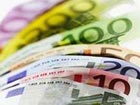| Videos | ? Latest |
|
? Feature | ? Sports | ? Your Videos |
Future of Europe's bailout fund

 0 Comment(s)
0 Comment(s) Print
Print E-mail
CNTV, January 18, 2012
E-mail
CNTV, January 18, 2012
Standard and Poor's cut the European Financial Stability Facility's credit rating on Monday, following the mass downgrade of nine eurozone countries last Friday. But traders and some eurozone leaders are not that worried about the European bailout fund.
However, the future of the fund still looms ahead. And for Greece, eurozone leaders are pinning their hopes on a private sector deal with the country to cap its ballooning debt bill.
The downgrade of the European bailout fund has had minimal impact on the markets - for now.
Traders say they are more concerned about future debt crisis developments.
Oliver Roth, trader for Close Brothers Seydler Bank said: "That was not a big surprise for the stock exchanges, simply because the markets have been running ahead of the rating agencies for six months because we already expected such a step of the rating agencies."
And among the politicians, the stance is confident. French finance minister Francois Baroin said: "Regarding the EFSF downgrade, I agree with what the German Finance Minister Wolfgang Schaueble says, there is no need to act to shore up the European Financial Stability Facility at the moment, its lending capabilities are intact."
But concerns remain about the future fire power of the fund.
Commerzbank economist Peter Dixon said: "It's still got headroom of $250 billion to go so it still can dip into its pockets and provide a significant amount of aid to those Euro Zone countries who need it. But obviously in the longer term given that the fund will probably have to be far bigger than has currently been anticipated obviously the downgrade rating, by limiting the size of that fund is going to make life an awful lot more difficult."
It was all quiet in Athens as a 24 hour transport strike to voice opposition to the cuts took effect.
S&P is warning that Greek default is likely after talks with creditors broke down last week.
14 and a half billion euros of bond redemptions are due in late March.
And without a private sector bond swap, that would include a write-off of some of Greece's debt, the second international bailout would fall apart.





